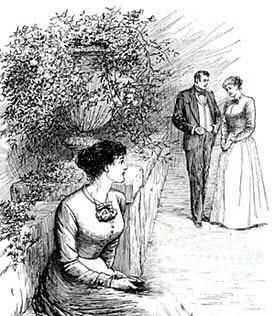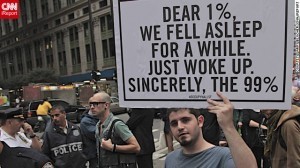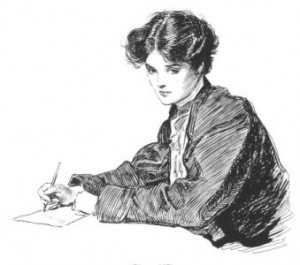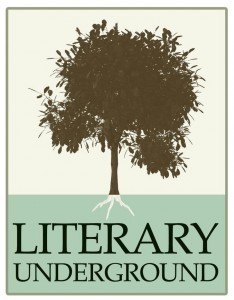V.R. Christensen's Blog, page 8
April 11, 2012
(pr)eHarmony – or Alternative Courthsip in the Victorian era
 I think most people who read, and especially those who write literature and Historical Fiction of the Victorian era understand the typical in's and out's of courtship propriety. (For a brief discussion on the topic, visit my post, here.) But it's interesting, if you think about it, how unsettled the canon actually was. And the proof of this is in the sheer number of etiquette manuals and advice guides written and published which focused on the single issue of courtship and marriage. There seems to have been a veritable battle to claim authority over the subject, and to establish a uniform code.
I think most people who read, and especially those who write literature and Historical Fiction of the Victorian era understand the typical in's and out's of courtship propriety. (For a brief discussion on the topic, visit my post, here.) But it's interesting, if you think about it, how unsettled the canon actually was. And the proof of this is in the sheer number of etiquette manuals and advice guides written and published which focused on the single issue of courtship and marriage. There seems to have been a veritable battle to claim authority over the subject, and to establish a uniform code.
Honestly, it amazes me how little things have actually changed, when you think about it. Perhaps the craze to get married is a thing of the past, but the desire for love and companionship is just as great as ever.
It sort of started with the advice columns. People would write in asking for advice about love and relationships, about how to deal with the opposite sex. The letters themselves were not printed, but the advice offered in reply supplied enough detail as to make the reader adequately enlightened upon the subject at hand. The opportunity arose herein to communicate, via a sort of coded language, with former lovers, or acquaintances of interest, or even with those with whom there had been a misunderstanding. (Sounds a lot like Facebook, doesn't it?) The trend started in the penny magazines and papers aimed at the lower and working classes, but soon the London Times had picked up on the fun, and on the potential readership such sensational articles attracted. (It makes sense to me that the Times would get involved in the fun of publishing the encrypted 'agonies' of their readers, and encouraging them to decypher the messages. Have you ever tried to do their crosswords?) In fact the correspondence articles became so popular that whole magazines were soon dedicated to them. Some of which took upon themselves the office of advising the advertiser as to which replies he or she should accept or disregard.
These correspondence articles grew so popular, that whole magazines and newspapers were printed, dedicated to that very aim: Matrimony. There are no less than twelve such papers, in London alone, listed by Jennifer Phegley in her book Courtship and Marriage in Victorian England (part of the invaluable Victorian Life and Times series, of which I mean to read all), including the Matrimonial News, Matrimonial Chronicle, Matrimonial Courier, Matrimonial Gazette, Matrimonial Intelligencer, Matrimonial Journal, Matrimonial Post, Matrimonial Recorder, Matrimonial Register, Matrimonial Times, and Matrimony. These were often delivered in a discrete envelope, as described below. Though sometimes that dignity saving envelope came with an extra cost.
THE MATRIMONIAL HERALD
AND
FASHIONABLE MARRIAGE GAZETTE
Official organ of the World's Great Marriage Association (Lmd), the Gigantic and sole recognised Marriage Institution for all classes in the British Empire, (10 years' public reference, vide the entire Press). Sent in plain sealed envelope, 5d. – Editor, 40, Lamb's Conduit St London.
But what sort of person would advertise this way? The low? The common? The desperate? The poor? I have a sampling, not from London alone, but from all over the country, and they display a wide assortment of folks seeking love and the supposed security of Matrimony (the word marriage isn't used).
Here is one from someone of means and property:
MATRIMONY – Lady, refined and educated, with over £1000 yearly houses and other properties, wishes to MARRY: residential locality unimportant. – The Bristol Mercury and Daily Post, 23 January 1894
Here is one from someone of humbler, yet still respectable means:
A Chemist, with an income of about £200, wishes to Correspond with Lady with like amount with view to early marriage. – Liverpool Mercury, 18 March 1893
Note he has no aspirations to marry above his sphere, but wishes to marry an equal. I think this is fairly typical. Money, as I have said before, is often the deciding factor when it came to determining compatibility. Sometimes it is the chief characteristic desired in a potential mate, as illustrated here:
BACHELOR Gentleman, of good family, and pleasing disposition and manners, considered good-looking, wishes to meet Protestant Lady of means (Spinster or Widow). View, early marriage. All communications regarded with honourable and strict confidence, and returned, if desired. Bona-fide references exchanged. – Liverpool Mercury, 18 March 1893
Sounds a bit like the makings of a business arrangement, doesn't it? Make no mistake, it was.
This one is probably my favorite, she sounds a bit desperate. Likely she does not wish to go abroad, and the only way she can stay at home is to marry.
MATRIMONY – Lady, good family, aged 25, affectionate, domesticated, £450 yearly, will receive £1,500 if speedily married. Relatives going abroad. – Bristol Mercury and Daily Post, 17 October 1892
This one is likely of a similar nature. The lady has means enough to hire a companion, and now, having lost her, (a servant such as that was a commitment, after all) prefers to marry than replace her. Its also interesting because it appears to give her address, a London address, at that, (or it is that of a friend) rather than using the editor's address, which is the usual way. (Though often those addressed to the paper were never received.)
MATRIMONY – A Lady, without near relatives, 32 years, considered prepossessing, and of pleasant disposition, who has been travelling for many years with an elderly Lady, as Companion, now deceased, wishes to Marry. She has £3,000 saved, and desires to meet a Gentleman who can increase her resources for mutual benefit. Miss Hearn, 12, Stonebridge Road, South Tottenham, London, N. – Bristol Mercury and Daily Post, 17 October 1892
This one I find interesting because the Gentleman in question is clearly concerned about following the rules of propriety, even if he does take advantage of the Matrimonials for a little help.
A GENTLEMAN, aged 32, of independent means, is anxious to correspond with the Friends or Guardians of a young Lady with a view to MATRIMONY. The Lady's family must be in a position to introduce advertiser into good society. – Freeman's Journal and Daily Commercial Advertiser, Dublin, Ireland. 12 February 1875
It could also indicate, by that last line, that he is not in Society, himself, so he either wishes to raise himself (improbable) or he is new to London and without connections of his own. Interesting.
This one is fun:
TWO Gentlemen, Holding good positions in Cardiff, one aged 23 years, height 6 ft, complexion dark, and the other aged 32, height 6ft 1in., complexion fair, are desirous of arranging interviews with two Ladies, young, good looking, amiable, and possessing means, with view to marriage. Absolutely genuine. No Matrimonial Agency need apply – Address, enclosing photos (which will be returned). – Bristol Mercury and Daily Post, 19 Mar 1892.
Like most writers of the era, I concern myself a great deal with what was right and proper, but considering these advertisements, I'm wondering if there aren't some more interesting stories to be told in ways I'd not before considered. I think, in general, the Victorians were a far more diverse and enterprising people than most of us have given them credit for. I'm glad to see the stereotypes breaking, and our understanding increasing. Much thanks to Jennifer Phegley for writing her wonderful book, and for continuing to blog and discuss these issues in ongoing interviews. Truly fascinating stuff!
*** I should note that there were also Matrimonial Agencies and Matchmaking Correspondence Clubs, which were oddly effective in their ways, but which will have to be a post for another time.
April 8, 2012
Fanfare for the Common Man
"The Century of the Common Man"Victoria was dead. Edward was King and not much had changed. Men and women, bored by decades of peace, by prosperity, by idleness, yet motivated by a love of family, of country and freedom, prepared for a war that was, by and large, unexpected. Eager to engage the enemy, sons and brothers, fathers and husbands, took up arms to protect the things most important to them. Their land, their livelihoods, their liberty. Their loved ones.
 This was World War I. To rally the troops, to inspire and encourage those at home, the British composer Eugene Goossens proposed a fanfare to be written and played at the opening of every orchestral concert.
This was World War I. To rally the troops, to inspire and encourage those at home, the British composer Eugene Goossens proposed a fanfare to be written and played at the opening of every orchestral concert.
The War to End All Wars ended. There were no victors. England lost three quarters of a million men in the effort. A truce was proposed, a laying down of arms. And to make it significant, men who had already tired of fighting, pretended to keep up the battle so that the guns could cease their firing at a time that no one would forget. Remember, remember the 11th of November: The eleventh hour, of the eleventh day of the eleventh month. It was a war to remember, indeed, and many prayed there would never be another.
But of course there was.
Wilson had promised not to enter the first war. It was inevitable we should. Equally inevitable was our participation in that second war. But how to rally our forces once more? How to encourage those at home to sacrifice their fathers and sons, their brothers and husbands?
It was Goossens idea to write another fanfare. He contacted fellow composer Aaron Copeland and asked if he would not consider writing it.
Copeland agreed, and his composition was inspired by US Vice President Harry Wallace's speech The Century of the Common Man, wherein Mr. Wallace delineated our history of Revolution, from the French Revolution, to the Russian Revolution, to the Revolution against Communist evils.
Things have changed a lot since then. Wallace's speech is full of Biblical references, calls to the duty of the Christian to promote Democracy, comparisons of the Nazi regime to Satan's army and of the oppressed to slaves. Much of his language would be cause for legal suit today. Is that a good thing? Personally I think not, but that's a debate for another time.
Wallace, in his speech, delineates the four basic freedoms for which those Revolution were fought, and for which we should still feel compelled to fight: freedom of religion, freedom of expression, and freedom from the fear of secret police.
 Do we have these freedoms today? Would we fight for them? Should we? Freedom is still much in demand, of course. But things seem to me to rather have flipped. Religious tolerance is on the wane, the rights that are most often fought for today are not always for the greater good of man, but rather in protection of our immediate gratification. But at what cost?
Do we have these freedoms today? Would we fight for them? Should we? Freedom is still much in demand, of course. But things seem to me to rather have flipped. Religious tolerance is on the wane, the rights that are most often fought for today are not always for the greater good of man, but rather in protection of our immediate gratification. But at what cost?
Still, I like the idea of the common man rising to make demands of his oppressors. I like what I see in the industries pertaining to the arts, where artists, musicians, writers take a stand to protect their own work. Where artisans strive to keep a bit of themselves in their finished work, to keep it personal. I think it's a long time coming. I'm tired of music and literature and art produced 'for the masses', reduced to its lowest common denominator so that it will appeal to 'popular' taste.
And yet, the pursuit of righteous living seems to be largely at an end. It worries me. We complain as a people about the corruption of our leaders, yet where will those of tomorrow come from if we are not the ones to raise them? Once upon a time we were concerned with the next generation, determined to make the world a better place for them. Is that still the case? And what will our children raise their flags to defend? At the moment, mine are very nearly prepared to raise an army to defend their t.v. and gaming privileges. I'm not sure this is a worthy pursuit.
Generally speaking, there are little rebellions going on all over the world today. They don't seem very organised. People are generally unhappy, but I'm not convinced they know exactly why. I don't presume to provide the answers, but I do have a few theories.
 What would I fight for? I have already fought (and for the most part won) the right to write, and to publish my work as I would wish to write it, with an aim at encouraging, enlightening, entertaining and inspiring. But I would also wish for a greater tolerance toward the ideologies of others. We think we are a more open minded people. By what I see in government and society, with the rise of rationalism and the attacks toward religion and faith, I don't see this as true. I do feel that in some places, people are becoming kinder, more understanding. Others are quick to judge and to make claims in violent adulation against those who lack understanding, or who understand things differently. I know I have grown by leaps and bounds in my understanding of certain social issues. But I didn't get there by being yelled at, or bombarded with malicious diatribe by those who would be hypocritical enough to call me the 'hater'. There is a lot of hypocrisy abounding. My heart was softened, my mind opened, by those who were kind and patient enough to maintain a dialogue with me, to keep the lines of communication open, even when my words, unknown to me, caused offense.
What would I fight for? I have already fought (and for the most part won) the right to write, and to publish my work as I would wish to write it, with an aim at encouraging, enlightening, entertaining and inspiring. But I would also wish for a greater tolerance toward the ideologies of others. We think we are a more open minded people. By what I see in government and society, with the rise of rationalism and the attacks toward religion and faith, I don't see this as true. I do feel that in some places, people are becoming kinder, more understanding. Others are quick to judge and to make claims in violent adulation against those who lack understanding, or who understand things differently. I know I have grown by leaps and bounds in my understanding of certain social issues. But I didn't get there by being yelled at, or bombarded with malicious diatribe by those who would be hypocritical enough to call me the 'hater'. There is a lot of hypocrisy abounding. My heart was softened, my mind opened, by those who were kind and patient enough to maintain a dialogue with me, to keep the lines of communication open, even when my words, unknown to me, caused offense.
Our battles today are likely not going to be fought with weapons. They'll be fought with minds and words. But sparring over a theological battlefield solves nothing. Let's open the lines of communication, agree to disagree if we must, but to truly be tolerant as we have for so long aimed to become, that so many of us pride ourselves in being.
I believe in the common man. And I believe he has the superior strength of will and intellect to choose the better way. That is what I am fighting for. My fanfare is a call to awareness and true concern for our fellow men, and for those who will come after.
What is yours?
The following is an excerpt of Harry Wallace's speech
*****************************************
It can be read in its entirety here.
This is a fight between a slave world and a free world. Just as the United States in 1862 could not remain half slave and half free, so in 1942 the world must make its decision for a complete victory one way or the other.
As we begin the final stages of this fight to the death between the free world and the slave world, it is worth while to refresh our minds about the march of freedom for the common man. The idea of freedom — the freedom that we in the United States know and love so well — is derived from the Bible with its extraordinary emphasis on the dignity of the individual. Democracy is the only true political expression of Christianity.
The prophets of the Old Testament were the first to preach social justice. But that which was sensed by the prophets many centuries before Christ was not given complete and powerful political expression until our nation was formed as a Federal Union a century and a half ago. Even then, the march of the common people had just begun. Most of them did not yet know how to read and write. There were no public schools to which all children could go. Men and women can not be really free until they have plenty to eat, and time and ability to read and think and talk things over.
Satan now is trying to lead the common man of the whole world back into slavery and darkness. For the stark truth is that the violence preached by the Nazis is the devil's own religion of darkness. So also is the doctrine that one race or one class is by heredity superior and that all other races or classes are supposed to be slaves.
In a twisted sense, there is something almost great in the figure of the Supreme Devil operating through a human form, … who has the daring to spit straight into the eye of God and man. But the Nazi system has a heroic position for only one leader. By definition only one person is allowed to retain full sovereignty over his own soul. All the rest are stooges — they are stooges who have been mentally and politically degraded, and who feel that they can get square with the world only by mentally and politically degrading other people. These stooges are really psychopathic cases. Satan has turned loose upon us the insane.
The march of freedom of the past one hundred and fifty years has been a long-drawn-out people's revolution. In this Great Revolution of the people, there were the American Revolution of 1775, The French Revolution of 1792, The Latin-American revolutions of the Bolivarian era, The German Revolution of 1848, and the Russian Revolution of 1917. Each spoke for the common man in terms of blood on the battlefield. Some went to excess. But the significant thing is that the people groped their way to the light. More of them learned to think and work together.
The people's revolution aims at peace and not at violence, but if the rights of the common man are attacked, it unleashed the ferocity of a she-bear who has lost a cub.
The people, in their millennial and revolutionary march toward manifesting here on earth the dignity that is in every human soul, hold as their credo the Four Freedoms enunciated by President Roosevelt in his message to Congress on January 6, 1941. These four freedoms are the very core of the revolution for which the United Nations have taken their stand. We who live in the United States may think there is nothing very revolutionary about freedom of religion, freedom of expression, and freedom from the fear of secret police. But when we begin to think about the significance of freedom from want for the average man, then we know that the revolution of the past one hundred and fifty years has not been completed, either here in the United States or in any other nation in the world. We know that this revolution can not stop until freedom from want has actually been attained.
… [A]nd when the time of peace comes, The citizen will again have a duty, The supreme duty of sacrificing the lesser interest for the greater interest of the general welfare. Those who write the peace must think of the whole world. There can be no privileged peoples. We ourselves in the United States are no more a master race than the Nazis. And we can not perpetuate economic warfare without planting the seeds of military warfare. We must use our power at the peace table to build an economic peace that is just, charitable and enduring.
I need say little about the duty to fight. Some people declare, and Hitler believes, that the American people have grown soft in the last generation.
The people's revolution is on the march, and the devil and all his angels can not prevail against it. They can not prevail, for on the side of the people is the Lord.
April 3, 2012
Of Moths & Butterflies – Free for one day only
Blind – Free on Kindle April 4-5, 2012
April 1, 2012
Do you have what it takes?
 It's a simple question, really. And I remember, in the early days of my writing career, when I was asked the question, I would immediately jump onto the defensive, as if he who had asked it were trying to cast doubt upon my abilities.
It's a simple question, really. And I remember, in the early days of my writing career, when I was asked the question, I would immediately jump onto the defensive, as if he who had asked it were trying to cast doubt upon my abilities.
Do you have what it takes?
I've asked the question of myself a hundred times. And answered it. If I were completely honest, I would tell you that I answered it knowing that I didn't understand the full breadth and scope of the six seemingly benign words.
Do. You. Have. What. It. Takes?
To answer the question in it's simplest form, replying to that which I understood and ignoring the margins, well, yes. Yes, I do. I know a lot of words. A LOT of words. And I can string them together to make sentences both concise and complex. I can form a plot, make a scene work. All things I've had to learn over time. I write cracking dialogue. Once my greatest weakness, it is now probably my greatest strength. I have learned. I have more yet to learn. But yes, to answer the question in it's most basic context—or perhaps, as I, in my basic understanding, understood it…. Yes. Yes, I do have what it takes.
Or do I?
Because what I did not understand until fairly recently, is that when you have talent, people suddenly see you as a threat. To what, I'm not sure. It's not a concept I've ever been able to quite fully grasp. But I do know that there are a great many people out there who consider themselves the masters of their art. Funny, really, when you think of it, since I know very few forms of art with only one master at the helm. And yet people do, for whatever reason, feel the need to 'own' their talent, as if they have some kind of stake and claim to it that others do not deserve. As if there's some prize to be had for gaining a monopoly. There isn't.
I've made my own mistakes. I confess it. I've behaved out of pride (and usually called out for it). As posted in a recent article, I've also behaved out of vanity (and am still paying some of those consequences.) But it's a habit of mine, in dealing with people, to pull the rug out from under my own feet. I want people to like me, so much so, that I will sometimes sabotage myself, so that the other person feels they have the greater power. To avoid, if I can, any sense of threat or competition. I do not like to offend, even if it's to let someone know they have caused offense.
This is something, if I want to succeed, that I must quit doing.
Another part of this question I had not realised before, or did, but did not grasp the breadth of, was the fact that I am extremely introverted. All  these guest posts, and reviews, interviews, newspaper articles, readings, signings and other appearances, whether live or in virtual reality really frighten me. And I don't mean at the time they are given or posted, but always. The more I put myself out there, the more vulnerable I become. I find myself, in the wake of increased sales, becoming depressed, having a hard time getting out of bed. I'm tetchy, emotional. I don't want to leave my house.
these guest posts, and reviews, interviews, newspaper articles, readings, signings and other appearances, whether live or in virtual reality really frighten me. And I don't mean at the time they are given or posted, but always. The more I put myself out there, the more vulnerable I become. I find myself, in the wake of increased sales, becoming depressed, having a hard time getting out of bed. I'm tetchy, emotional. I don't want to leave my house.
So do I? Do I have what it takes? Can I make the appearances? Can I do the readings without stumbling over my own words, without my knees literally knocking so hard I can barely stand? I don't know. All I can do is try. It is, after all, too late to go back.
Can I keep writing? Keep publishing? The answer, really, is I must! Because there are two books waiting in the wings, done for all intents and purposes, though there are several rounds of revisions ahead. There are half written stories, too. There are files full of ideas. There are half a dozen short stories waiting for a purpose. There is more I want to say.
Do I have what it takes to meet the deadlines? To get up each and every day and sit in front of the computer screen when I'd rather be outside, or keeping up with the housework? Do I have what it takes to persist when the umpteenth final, FINAL revision is due? When the reviews come in, some good, some bad? When the people you thought were your friends write scathing reviews, and condemning blog posts full of professional criticism and unprofessional fury? Do I have what it takes to help promote the authors in my writing groups whose talent deserves to be appreciated, even when I know they personally despise me for reasons I have no control over? Can I do it gracefully? Even when it hurts? Even when it's personal? Even when it's not? Do I have what it takes?
Well…do I?
I consider the question carefully.
Damn straight, I do!
March 26, 2012
Regularly scheduled broadcasting will resume…
This week I'm in two places at once! Please visit me at Cathleen Holst's website. She's the lovely author of the truly wonderful novel Everleigh in NYC.
I'm also really honoured to be hosted at Gev Sweeney's blog. Her novel, The Scattered Proud, was a gorgeous piece of Historical Fiction, and one I'm not likely to forget.
It was sort of an unplanned blog tour, but it's been great and a lot of fun. This is the last week, though, of both the tour, and the giveaway, and then I'll be back to my regularly scheduled blog posts. In the mean time, don't forget there are
ONLY FOUR DAYS LEFT TO ENTER THE GIVEAWAY!
March 19, 2012
I’ve been interviewed!
By the lovely Steven Novak of Literary Underground. For all those interested, here is the link.
And don’t forget about the giveaway! Just a week and a half left to enter.
I've been interviewed!
By the lovely Steven Novak of Literary Underground. For all those interested, here is the link.
And don't forget about the giveaway! Just a week and a half left to enter.
March 12, 2012
Giveaway! Giveaway! Giveaway!
With the screaming success of my Amazon promotion (a week and a half later, it's still a bestseller!), I've very nearly forgotten about my giveaway. But how could I? EBooks are one thing, a revolution in progress and all that, but PHYSICAL COPIES? How could anyone resist? I still prefer good ol' hardcovers, but you know how old fashioned I am.
So here it is, the Rafflecopter giveaway. It looks complicated, but it's really not. Just enter, click the buttons, do what it says and that's it! You collect points for everything you do. Do one thing, do them all and increase your chances! If I get fifty entries, I'll double the prize! How's that? So please participate. And while's you're here, why not stay a while? There's exciting stuff happening all the time.
March 5, 2012
The story behind Of Moths and Butterflies
This week's post is at
And don't forget there's a giveaway!
a Rafflecopter giveaway
You need javascript enabled to see this giveaway.









